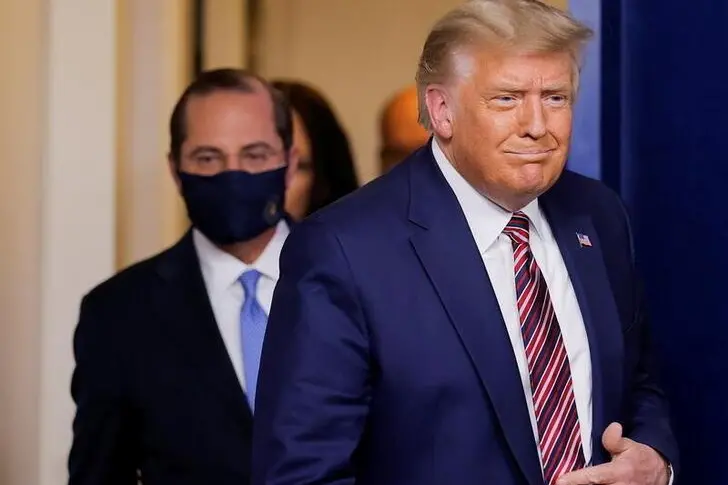PHOTO
(The author is a Reuters Breakingviews columnist. The opinions expressed are her own.)
SAN FRANCISCO - Donald Trump has only two more months to lash out at China as U.S. president. But his successor, Joe Biden, will also feel the impact of whatever blows the outgoing commander in chief decides to land before he departs in January. The risk is that the president-elect will be left with little room to make his own mark.
Trump vowed to be tough on the People’s Republic, and there’s no reason to think he won’t continue until the end. The White House may expand an executive order barring Americans from buying, selling, or owning securities in Chinese companies linked to the mainland’s military, according to people familiar with the situation. That currently affects 31 companies including China Mobile. By the end of Trump’s term, there may be upwards of 300 names total.
Expanding sanctions is another option. Under a law enacted in July, the U.S. Treasury Department has until Dec. 13 to name foreign banks that do significant business with Hong Kong Chief Executive Carrie Lam and other officials deemed responsible for undermining the region’s autonomy. Those firms could be cut off from loans and other services provided by U.S. banks, in addition to U.S. dollar transactions.
Chinese companies listed on U.S. exchanges are also vulnerable. The Securities and Exchange Commission is considering a proposal to bar mainland firms if they don’t use auditors approved by American regulators. Chair Jay Clayton only has a few weeks to kick off the process before he leaves, at some point before the end of the year. Companies already listed would be given three years to comply.
While these crackdowns would hurt investors, they may be tolerable. Chinese politicians, companies, and investors have in theory had plenty of time to anticipate them. The biggest impact Trump could make, though, would be to reignite his tariff war, undoing a fragile truce reached in January. That would likely rattle markets. Such moves in 2018 and 2019 cut equity prices by 6 percentage points for about 3,000 firms, wiping out $1.7 trillion in market value, according to a May study by the National Bureau of Economic Research.
Biden can roll any of these potential moves back. Politically, though, whatever Trump does might box him into a corner. If the new president’s first move is to undo strictures on the People’s Republic, he will face pushback from lawmakers on both sides of the aisle who want the government to be tough on China. As different as Biden is from his predecessor, it may be Trump who sets the tone for the next administration’s relationship with an important trade partner.
CONTEXT NEWS
- The U.S. Treasury Department has until Dec. 13 to submit a report naming foreign financial institutions that knowingly conduct significant transactions with sanctioned individuals deemed responsible for undermining Hong Kong’s autonomy.
- Within one year of being included in such a report, the U.S. president must impose at least some sanctions on those financial institutions, according to the Hong Kong Autonomy Act. Options include restricting loans, foreign exchange and banking transactions with U.S. institutions. A president could also impose similar penalties through an executive order.
(The author is a Reuters Breakingviews columnist. The opinions expressed are her own.)
(Editing by John Foley and Amanda Gomez) ((gina.chon@thomsonreuters.com; Reuters Messaging: gina.chon.thomsonreuters.com@reuters.net))
© Reuters News 2020





















